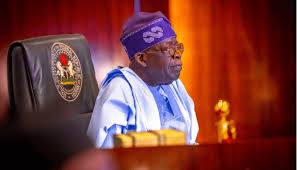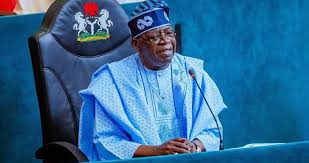By Professor Abdulkareem Garba
The exchange rate of the Naira against the US Dollar has long been a topic of concern for Nigerians due to its impact on the economy, inflation, and standard of living. In recent times, the value of the Naira against the Dollar had been declining, leading to a rise in prices of goods and services.
These price hikes caused significant hardship for the citizens as the cost of living soared. However, a recent shift has seen the Naira appreciating against the Dollar, but unfortunately, the prices of goods and services have not followed suit, creating further economic challenges.
READ ALSO:
Understanding Solutions to Scourge of Poverty in Nigeria
Factors Responsibility for Reluctance prize fall of Goods and Services Despite relative naira appreciation.
Several factors can be attributed to the reluctance of prices to decrease despite the appreciation of the Naira against the Dollar. One key factor is the lag effect in the response of prices to exchange rate changes. Prices often take time to adjust to changes in the exchange rate, as businesses may have already set prices based on previous rates and may be hesitant to lower them immediately. Additionally, businesses may take advantage of the situation to maintain higher prices in order to maximize profits.
Another factor is inflation inertia, where prices have been driven up due to past inflationary trends and are slow to reverse despite changes in exchange rates. Inflation expectations play a significant role in this phenomenon, as consumers and businesses may anticipate future inflation and adjust prices and wages accordingly, creating a self-reinforcing cycle of inflation.
The impact of this scenario on the Nigerian economy is profound. Persistent high prices erode the purchasing power of consumers, leading to reduced consumption levels and overall economic activity.
READ ALSO:
N500 Billion New Capital Base Requirement : A Right or Wrong Monetary Policy
Inflation, fueled by high prices of goods and services, further exacerbates the economic challenges by eroding the value of the Naira and reducing the standard of living for Nigerians. Additionally, the exchange rate volatility can lead to uncertainty in the business environment, discouraging investments and hindering economic growth.
Solution to Continuous increase in food inflation, Rising Cost of Leaving
To address these challenges, there are several measures that the government and businesses can take. Firstly, the government can implement policies to encourage price stability and ensure that businesses pass on the benefits of the appreciating Naira to consumers.
This can be done through regulatory mechanisms, such as price controls or monitoring, to prevent unjustified price hikes. Additionally, the government can work to strengthen the competitiveness of local industries to reduce reliance on imports, which can help stabilize prices and support economic growth.
Businesses, on the other hand, can play a role by adopting transparent pricing practices and adjusting prices in line with changes in exchange rates. Building trust with consumers through fair pricing can help maintain customer loyalty and support long-term business sustainability.
READ ALSO:
Rising Scourge of Unemployment and Potential Threat to National Growth
Businesses can also focus on improving efficiency and reducing costs to mitigate the impact of exchange rate fluctuations on prices. In the long term, addressing the root causes of inflation and exchange rate volatility is crucial to turning the situation in favor of the Nigerian economy.
This includes implementing structural reforms to improve the efficiency of the market, enhance productivity, and reduce reliance on imports. Strengthening institutions, such as the Central Bank of Nigeria, to effectively manage monetary policy and exchange rate stability can also contribute to a more stable economic environment.
Moreover, investing in infrastructure and diversifying the economy can help reduce vulnerabilities to external shocks and create new growth opportunities. By promoting innovation, entrepreneurship, and value-added industries, Nigeria can build a more resilient economy that is less susceptible to exchange rate fluctuations and inflationary pressures.
In conclusion, the dynamics of the Naira exchange rate against the US Dollar have far-reaching implications for the Nigerian economy, inflation, and standard of living. While the recent appreciation of the Naira is a positive development to Nigeria and Nigerians.
Prof. Abdulkarim Garba
Department of Banking and Finance
Faculty of Management Sciences
Bayero University, Kano
PMB 3011, Kano
Email: agarba.bf@buk.edu.ng























 You can install this WP plugin on your website from the WordPress official website:
You can install this WP plugin on your website from the WordPress official website: 